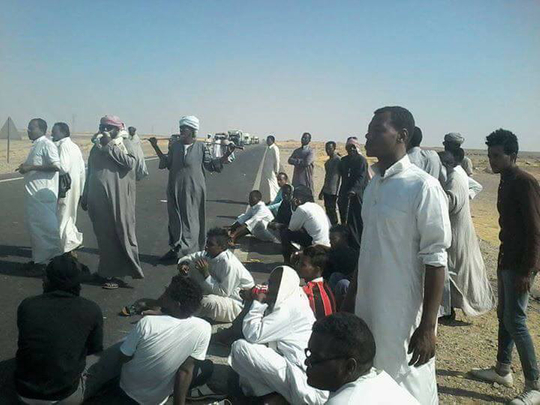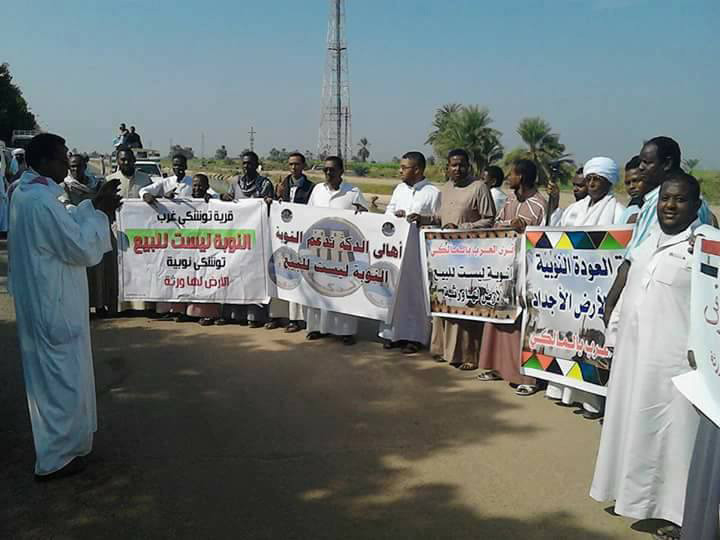
Cairo: An Egyptian parliamentary team on Tuesday headed to Aswan in Upper Egypt in an attempt to end a standoff there between authorities and ethnic minority Nubians.
Dozens of Nubians have been blocking a major tourist road south of Aswan since Saturday, protesting against a planned sale of what they regard as their ancestral lands near the border with Sudan.
The sit-in on the Abu Simbel road started after security forces refused to allow the protesters’ so-called “Nubian Return Convoy” to reach the villages of Toshka and Khurkundi where the government plans to sell around 120,000 feddans (acres) to investors.
Prime Minister Sharif Esmail met the parliamentary delegation on Monday and discussed the standoff that prompted tour operators to cancel scheduled visits to the famous archaeological site of Abu Simbel.
“The prime minister confirmed that if the area at the centre of the crisis is part of Nubia, then Nubians will have the priority in owning the land there,” Mustafa Bakri, a member of the team, said.
“The prime minister also hoped that the protesters will finish their sit-in because Egypt is their homeland and Nubia has a long history of patriotism,” Bakri told private television station Al Nahar.
Some government officials, including Tourism Minister Yehia Rashed, have stepped in to defuse tensions.
Tourism, Egypt’s key foreign currency earner, is struggling to recover from years of slump caused by the unrest that followed a 2011 uprising in the country.
Some Nubian protesters have ruled out ending the sit-in before meeting their demands of cancelling the sale and taking official steps to allow for their repatriation to their historic homeland along the border of southern Egypt and northern Sudan.
“We will not buy our own land,” Mohammad Azami, a Nubian activist and an organiser of the caravan, said, commenting on the suggestion of giving Nubians the priority in buying the land put up for investment.
“The sit-in will continue despite the attempts of security to disperse it,” he told semi-official newspaper Al Ahram.
Nubians have long complained about marginalisation in Egypt. Present-day Nubians say that their ancestors have been forcibly displaced from their areas since the early 20th century as a result of Nile floods and irrigation projects built there.
The largest displacement took place in 1963 when Egypt started building the High Dam in Aswan to control floods and generate hydroelectricity.
Egypt’s constitution, ratified in 2014, recognises Nubians’ right to return to their original areas and commits the state authorities to “develop them within 10 years”.
However, Nubians say the government has failed to comply.
They also resent a republican decree issued in late 2014 allocating long tracts of land in the area to the army.
In October this year, the government said that part of land in Toshka would be sold to investors as part of the 1.5 million feddan project, an ambitious farming scheme.
Nubian groups consider both moves unconstitutional and demand they scrapped.
There are no official figures about the numbers of Egyptian Nubians. However, they are believed to make up around one per cent of the country’s 91 million population.












